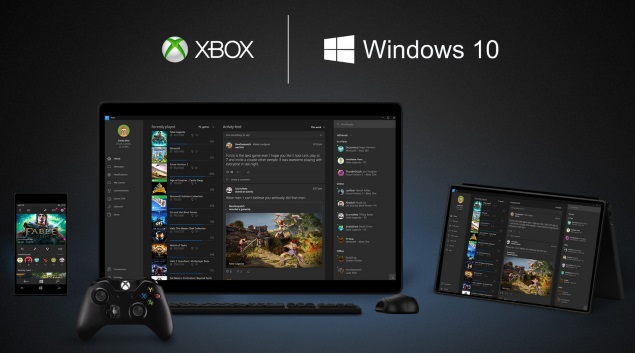Microsoft
pulled back the curtain Wednesday on a coming Windows 10
operating system focused on bringing harmony to the diverse array of
Internet gadgets in people's lives.
The US technology titan is also
trying to make it more natural to interact with devices, such as
conversational-style speaking with the company's virtual assistant
Cortana.
(Also see: Microsoft Unveils HoloLens Goggles and Windows Holographic UI)
"The number of devices is just exploding around us,"
Microsoft's Terry Myerson said during a presentation to press and
analysts at the company's headquarters in Redmond, Washington.
"It should be easy to put one device down and pick up another where you left off; technology needs to get out of the way."
Windows 10 is being designed with feedback from millions of "insiders" testing
early versions of the operating system, Myerson said.
That
feedback and design creates a foundation on which developers can build
applications for smartphones, tablets, laptops, desktop computers, and
Xbox One video game consoles, he said.

During the first year after
the release of Windows 10, the operating system will be available as a
free upgrade for computers running prior generation Windows 8.1 or
Windows 7 software.
Microsoft said it will also keep Windows 10 upgraded during the lifetime of devices.
Personalized
virtual assistant Cortana, and its touted ability to answer questions
conversationally, will be now available on personal computers. Cortana
made her debut on Windows-powered mobile devices.
Microsoft also
unveiled a new Web browser code-named Spartan, which will have Cortana
built in and ready to chime in at presumably helpful moments.
Spartan is poised to be the successor to Internet Explorer.
"Project
Spartan is a new browsing experience tuned for being mobile and working
across this family of devices," said Microsoft's Joe Belfiore.
 Microsoft Directed to Pay IPA Technologies $242 Million in Cortana Patent Lawsuit11 May 2024
Microsoft Directed to Pay IPA Technologies $242 Million in Cortana Patent Lawsuit11 May 2024 Halo TV Series Teaser Trailer Shows Pablo Schreiber as Master Chief, Coming to Voot Select in 202216 November 2021
Halo TV Series Teaser Trailer Shows Pablo Schreiber as Master Chief, Coming to Voot Select in 202216 November 2021 Microsoft Outlook for iOS Gets Voice Dictation for Emails, Scheduling Meetings; Android Support Coming Soon9 June 2021
Microsoft Outlook for iOS Gets Voice Dictation for Emails, Scheduling Meetings; Android Support Coming Soon9 June 2021 Microsoft's Cortana Virtual Assistant App for Android and iOS Discontinued1 April 2021
Microsoft's Cortana Virtual Assistant App for Android and iOS Discontinued1 April 2021 Microsoft Lens Is the New Name of Office Lens, First Amongst Many Mobile Productivity Changes2 February 2021
Microsoft Lens Is the New Name of Office Lens, First Amongst Many Mobile Productivity Changes2 February 2021


![Gadgets 360 With Technical Guruji: News of the Week [July 5, 2025]](https://c.ndtvimg.com/2025-07/on2ghsbc_news-of-the-week_160x120_05_July_25.jpg?downsize=180:*)












